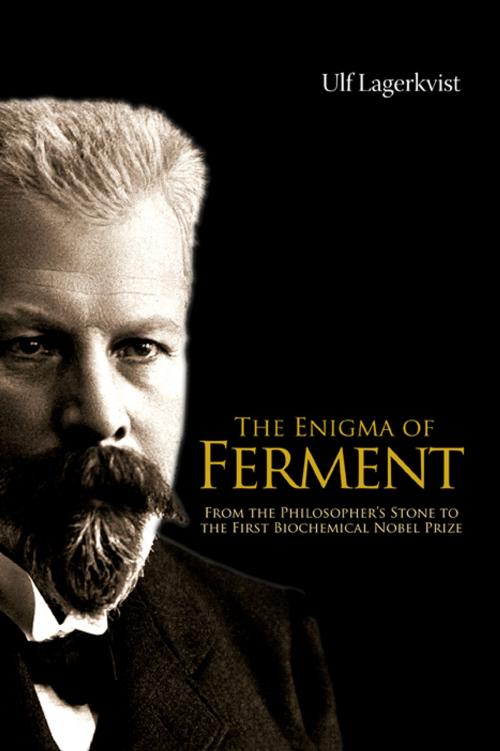The Enigma of Ferment
From the Philosopher's Stone to the First Biochemical Nobel Prize
Nonfiction, Science & Nature, Science, Biological Sciences, Biochemistry| Author: | Ulf Lagerkvist | ISBN: | 9789814338165 |
| Publisher: | World Scientific Publishing Company | Publication: | November 7, 2005 |
| Imprint: | WSPC | Language: | English |
| Author: | Ulf Lagerkvist |
| ISBN: | 9789814338165 |
| Publisher: | World Scientific Publishing Company |
| Publication: | November 7, 2005 |
| Imprint: | WSPC |
| Language: | English |
This popular account of the history of ferment takes the reader on a fascinating journey from its obscure origins in medieval medicine and alchemy to the modern concept of the enzyme. During the 19th century, the question of the nature of the ferment led to a long and bitter conflict between those that believed in a vital force peculiar to the living cell and those that looked for a more chemical explanation. The book takes an in-depth look at the events of 1897 when Eduard Buchner demonstrated that cell-free extracts of yeast could catalyze alcoholic fermentation, putting an end to “vitalism” and at the same time earning him a Nobel Prize, the first to be awarded for purely biochemical work.
Contents:
- Alchemy and the Dawn of Chemistry
- Medicine and Chemistry in the Scientific Revolution
- A Golden Age of Chemistry
- Ferment or Vital Force
- A Fortuitous Observation
- The Nobel Prize
Readership: Academics as well as general readers.
Key Features:
- Gives readers a feeling for how events unfolded over the centuries and the often colourful characters that were involved
- Details a series of conflicts between schools of scientists where individuals stand out as interesting personalities
This popular account of the history of ferment takes the reader on a fascinating journey from its obscure origins in medieval medicine and alchemy to the modern concept of the enzyme. During the 19th century, the question of the nature of the ferment led to a long and bitter conflict between those that believed in a vital force peculiar to the living cell and those that looked for a more chemical explanation. The book takes an in-depth look at the events of 1897 when Eduard Buchner demonstrated that cell-free extracts of yeast could catalyze alcoholic fermentation, putting an end to “vitalism” and at the same time earning him a Nobel Prize, the first to be awarded for purely biochemical work.
Contents:
- Alchemy and the Dawn of Chemistry
- Medicine and Chemistry in the Scientific Revolution
- A Golden Age of Chemistry
- Ferment or Vital Force
- A Fortuitous Observation
- The Nobel Prize
Readership: Academics as well as general readers.
Key Features:
- Gives readers a feeling for how events unfolded over the centuries and the often colourful characters that were involved
- Details a series of conflicts between schools of scientists where individuals stand out as interesting personalities















